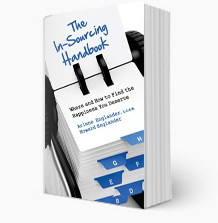May I offer a perplexing concept: is it possible that we have been trained to be unhappy?
Think back at what we have been told are the relationships and ‘things’ that we must have in order to be ‘happy:’ taking the role of Prince or Princess in a fairytale story; showing off a super model body; having a prestigious high paying job; owning the house on the hill with a white picket fence.
For most of us growing up, some version of this ‘formula for happiness’ was the gospel preached by our families and cultural backgrounds. Because we were too young to trust your own intuition and inclinations we accepted as truism that we must strive relentlessly to acquire material success, societal approval and a mythical version of a true love. That was the dream life; that was “happiness.”
Because the dream is alluring and ours is a society of worker bees, we were relentless in our search and if we were one of the lucky ones, actually found our ‘soul mate’ and a place in the inner circle. We were happy… until the underlying fear that what we had so conscientiously endeavored to put in place might slip out under the threshold if we were not on our guard. And soon, we were spending more and more time protecting what we had, rather than enjoying it.
The dilemma is, because of how we were trained, it’s natural to become forever attached to the lifestyle we are convinced we cannot be happy without. We cling to what we have acquired and fight off every possibility of losing it.
This is an exhausting undertaking. It is also an impossible task in a world that is ever-changing and beyond our control. And so the paradox: what we were taught to follow as the path to happiness leads to a life of frustration, anxiety and insecurity. We become depressed and miserable because we are attached to the things we have convinced ourselves we cannot be happy without.
Certainly there are core values and criteria that are fundamental to giving us satisfaction and joy. But we each have our own unique strengths and weaknesses, our own inner core of authenticity that defines us as individuals.
When we search our early years objectively we begin to realize that we were programmed to be who our parents and culture wanted us to be. Happiness, however, is a fuzzy concept and can mean different things to different people. Whereas human needs are common, how they are fulfilled is uniquely individual!
Self-actualization is the key per this quote from the author, Shakti Gaawain: We will discover the nature of our particular genius when we stop trying to conform to our own or to other peoples’ models, learn to be ourselves, and allow our natural channels to open.
Seeing anew the influences that shaped our lives can lead to a new model of what it means to be happy. Perhaps I can help in the search.

